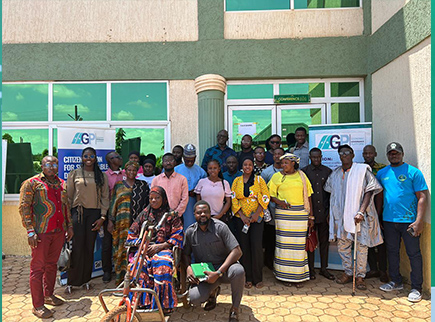The Economic Governance Platform, a coalition of civil society organisations, has called on the government to institutionalize a credible debt sustainability framework as a critical measure to enhance Ghana’s economic resilience.
It said such a framework would not only reduce the country’s dependence on International Monetary Fund bailouts but also strengthen financial discipline and curb corruption, which had long hindered sustainable growth and development.
The call was made at a stakeholders’ consultative forum in Tamale where a new report on Ghana’s public finances was launched.
The report titled: “Sustainable Debt Management in Ghana”, is a flagship output of the Citizen Action for Sustainable Debt Management Project.
The project is hosted by the Ghana Anti-Corruption Coalition and implemented through the Economic Governance Platform with support from the Open Society Foundations.
The launch brought together various stakeholders, including youth-led advocacy groups, the media, traditional and religious leaders, persons with disabilities and civil society actors from across the Northern Region.
The event served as a platform for detailed analysis of Ghana’s debt situation and offered practical policy recommendations to strengthen accountability, civic engagement and Parliamentary oversight in public debt management.
Mr Abdul-Karim Mohammed, Coordinator, Economic Governance Platform, who presented the findings during the forum in Tamale, said the report identified the need for clearer separation of roles and stronger oversight concerning the Bank of Ghana’s discretionary powers in debt operations and liquidity management.
He said the findings highlighted critical gaps in the country’s debt management practices, including the absence of an independent fiscal council to oversee government expenditure and borrowing.
To address the gaps, the report recommended the establishment of an independent fiscal body to monitor budget planning, revenue mobilisation and deficit financing strategies.
It recommended reform proposals, including improving domestic revenue mobilisation, enhancing anti-corruption mechanisms and financial oversight, and increasing the efficiency of public spending.
The report also advocated legal reforms to strengthen fiscal responsibility, the enhancement of budget execution and expenditure tracking systems, and the institutionalisation of a credible debt sustainability framework.
Further recommendations included the re-establishment and protection of the sinking fund, improved transparency in debt reporting and classification, and the promotion of stakeholder participation in fiscal policy formulation among others.
Dr Kodimah Siita, Executive Director, Centre for Opportunities and Rural Development, commended the Economic Governance Platform and its partners for spearheading the initiative.
He said full implementation of the report’s recommendations would not only improve Ghana’s economic governance but also build resilience to external shocks and reduce reliance on international financial assistance.
Mr Abdul-Aziz Mohammed, a representative of the Northern Region Muslims Council, called for a national orientation programme that would help address issues of corruption and prioritise the consumption of Ghanaian products to ensure the stability of the economy.
Other participants at the launch called for collective efforts by all stakeholders to enhance financial discipline and accountable governance for sustainable growth and development.

